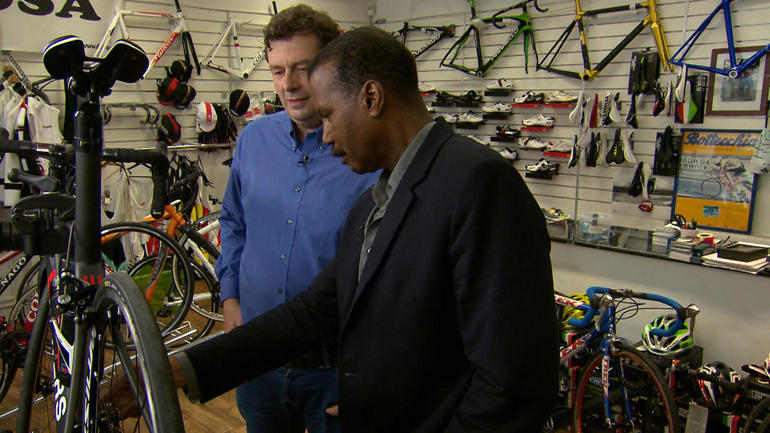Have secret motors been used to cheat in pro cycling? – CBS News
The Hungarian designer of a secret bike motor tells Bill Whitaker he thinks the motors have been used to cheat in pro cycling as far back as 1998. Istvan Varjas speaks to Whitaker for a 60 Minutes investigation into mechanical cheating in a sport already infamous for its doping scandals. One of the sport’s champions, three-time Tour de France winner Greg LeMond, is convinced the motors are being used. He’s also in the 60 Minutes report, to be broadcast Sunday, Jan. 29 at 7 p.m. ET/PT.
Varjas, a scientist and former cyclist, says he first designed a motor to fit inside a bike’s frame in 1998. He says a friend found an anonymous buyer who offered him nearly $2 million for it. Varjas says he took the money and agreed not to work on such motors, nor sell or speak of them, for 10 years. Asked whether he believes hidden motors like his have been used since then, he answers, “I think. Yes.”

From left: Istvan Varjas, a scientist and former cyclist, and 60 Minutes correspondent Bill Whitaker
Varjas claims it’s not his fault if pro cyclists ended up with his bike. “If a grandfather came and buy a bike and after it’s go to…his grandson who is racing, it’s not my problem,” he says. Asked whether he would sell a motor to a person who told him he was going to cheat with it, he replies with a little laugh, “If the money is big, why not?”
60 Minutes met Varjas in a Budapest bike shop where he demonstrated his motor designs and completed motorized bicycles that he sells to wealthy clients. He showed 60 Minutes how a secret switch can engage the hidden motors, or, in a more sophisticated model, they can be engaged when a racer’s heart rate peaks. He allowed Whitaker to test ride some of the bikes with hidden motors.
The first time it was publicly suspected a motor was being used in pro cycling was in 2010 when a Swiss rider raced at an unusually high speed. That rider denied using a motor. There have been other suspicious incidents and one rider was caught with a secret motor in 2016. Jean-Pierre Verdy, former testing director of the French Anti-Doping Agency, says the sport has a problem. “It’s been the last three to four years when I was told about the use of the motors,” Verdy tells Whitaker. “There’s a problem. By 2015, everyone was complaining and I said, ‘something’s got to be done.’”
LeMond, an outspoken advocate for drug testing, wants his former sport to do more testing for the motors, too. “This is curable. This is fixable. I don’t trust it until they figure out…how to– take the motor out. I won’t trust any victories of the Tour de France,” says LeMond.



